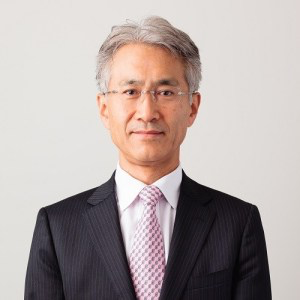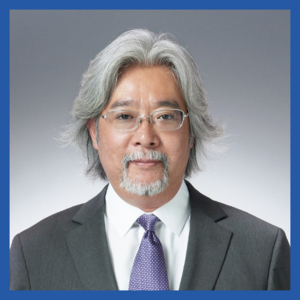Sony Group Corporation: Difference between revisions
No edit summary |
Gauravjha2 (talk | contribs) |
||
| Line 4: | Line 4: | ||
== Operations == | == Operations == | ||
=== Business Model<ref>https://blog.gitnux.com/companies/sony/</ref> === | |||
Sony Corporation, a Japanese multinational conglomerate, excels in Consumer Electronics, Gaming, Entertainment, and Financial Services. Using the business model canvas, we see its success factors: | |||
'''Value Propositions:''' Sony delivers top-notch consumer electronics, gaming consoles, movies, and music. Innovation, tech prowess, and diversification bolster its brand and customer loyalty. | |||
'''Customer Segments:''' Sony's products cater to individuals, gamers, businesses, and industries. Its broad client base spans demographics and needs. | |||
'''Channels:''' Sony uses online/offline platforms, like its official store, third-party online sellers, physical retail, and global retail partnerships. | |||
'''Customer Relationships:''' Sony's strong brand and reputation cultivate trust. Social media, loyalty programs, support, and warranties further customer connections. | |||
'''Key Resources:''' Sony relies on advanced tech, R&D, IP, and global partnerships. Skilled workforce also drives its success. | |||
'''Key Activities:''' Sony focuses on R&D, manufacturing, marketing, and distribution to stay competitive in diverse sectors. | |||
'''Key Partnerships:''' Suppliers, distributors, retailers, and entertainment collaborators form Sony's network. Strategic partnerships drive success in divisions. | |||
'''Cost Structure:''' Sony's costs encompass manufacturing, R&D, marketing, distribution, etc. Its diversified revenue streams include electronics sales, gaming subscriptions, and entertainment profits. | |||
In essence, Sony thrives through diverse products, broad customer outreach, and varied distribution channels. Innovation, tech leadership, and strategic partnerships fuel its competitive edge and success. | |||
=== Past Mergers and Acquisitions Deals === | |||
'''Columbia Pictures Entertainment, Inc. (1989):''' One of Sony's most significant acquisitions was its purchase of Columbia Pictures. This move allowed Sony to establish itself as a major player in the entertainment industry by gaining access to a large library of films and television shows. | |||
'''Sony Ericsson (2001-2012):''' Sony entered a joint venture with Ericsson to create Sony Ericsson, a mobile phone manufacturing company. Sony later acquired Ericsson's share of the venture, fully integrating it into its own operations, and renaming it Sony Mobile Communications. | |||
'''CBS Records (1988):''' Sony acquired CBS Records, which was later renamed Sony Music Entertainment, giving the company a strong presence in the music industry. | |||
'''Sony BMG Music Entertainment (2004-2008):''' Sony acquired the Bertelsmann Music Group's (BMG) 50% stake in Sony BMG, making it a wholly-owned subsidiary. However, this was followed by regulatory concerns, leading to the divestiture of the joint venture, resulting in Sony Music Entertainment. | |||
'''ATV Music Publishing (1995):''' Sony formed a joint venture with Michael Jackson to acquire the ATV catalog, which included the rights to numerous iconic songs, including many of The Beatles' works. In 2016, Sony acquired Jackson's stake in the joint venture, gaining full control of ATV Music Publishing. | |||
'''Epic Records (1988):''' As part of the acquisition of CBS Records, Sony gained ownership of Epic Records, a major record label known for its roster of popular artists. | |||
'''Insomniac Games (2019):''' Sony acquired Insomniac Games, a well-known video game developer responsible for creating franchises like "Ratchet & Clank" and "Spider-Man." | |||
'''Crunchyroll (Pending as of 2021):''' Sony announced its intention to acquire Crunchyroll, a popular streaming service focused on anime content. This acquisition aimed to bolster Sony's presence in the streaming industry, particularly in the anime genre. | |||
=== Management Team === | |||
==== Chairman and CEO ==== | |||
[[File:Image 190430 145029.png|left|thumb|300x300px|Kenichiro Yoshida is a Japanese businessman who is currently the chief executive officer of Sony. He began this role in April 2018, succeeding Kazuo Hirai, prior to which Yoshida was the company's chief financial officer. Yoshida joined Sony in 1987, and worked across the company's subsidiaries in the US and Japan.In the year 2000, he worked for Sony subsidiary So-net, which he took public in 2005. He rejoined Sony in 2013 as deputy chief financial officer and was promoted to chief financial officer the following year. In his role as CFO, he was credited with pushing the company through an extensive restructuring which turned around Sony's losses from consumer electronics. | |||
]] | |||
==== President, COO and CFO ==== | |||
[[File:Press hiroki totoki.jpg|left|thumb|300x300px|Hiroki Totoki is the President, COO, and CFO of Sony Group Corporation. He has also served as an independent Director on Recruit Holdings' Board since 2018. Previously, he played key roles at Sony Corporation including launching Sony Bank, leading various departments such as Business Strategy, Corporate Development, Finance, and New Business Development. He became the Representative Director and CFO of Sony Network Communications Inc. in 2013 and led the restructuring of Sony Mobile Communications Inc. as its President and CEO in 2014. In 2021, he took on the roles of Executive Deputy President, CFO, Representative Corporate Executive Officer, and Director of the Board at Sony Group Corporation.]] | |||
==== Executive Deputy President and CSO ==== | |||
[[File:LESI-Speaker41.png|left|thumb|300x300px|Toshimoto Mitomo has been with Sony Group Corporation since 1985 and currently holds the position of Executive Deputy President and CSO. He oversees Intellectual Property, Business Strategy, Business Development, and Business Incubation Platform, responsible for global IP strategies, technology standardization, and long-term business growth. Additionally, he leads Sony Innovation Fund as Senior Investment Executive. He has also served as Vice Chairman of Japan Intellectual Property Association and participated in Japan's Ministry of Economy, Trade and Industry's Industrial Structure Council. Mr. Mitomo is renowned for his involvement in various IP deals and recognition in IAM Strategy 300 and Top 40 Market Makers.]] | |||
==== Senior Executive Vice President and CTO ==== | |||
[[File:B 9C3ux4XJYUZt2W26yEgcyjf2Ru s1TMwjgYCQZl8c980.jpg|left|thumb|300x300px|Hiroaki Kitano is a Japanese scientist. He is the head of the Systems Biology Institute (SBI); President and CEO of Sony Computer Science Laboratories; a Group Director of the Laboratory for Disease Systems Modeling at and RIKEN Center for Integrative Medical Sciences; and a professor at Okinawa Institute of Science and Technology (OIST). Kitano is known for developing AIBO, and the robotic world cup tournament known as Robocup.]] | |||
==== Executive Vice President, CDO and CIO ==== | |||
[[File:Download1245f6.jpg|left|thumb|273x273px|Tsuyoshi Kodera is former CEO and President of PlayStation. A 30-year company veteran, he initially joined SIE's network team in 2010, later becoming president of Sony Network Entertainment group in 2013. Kodera played a pivotal role in launching key PlayStation online services, including the PlayStation Store, PlayStation Plus, PlayStation Now, Video, and Music. Notably, PlayStation Plus, offering online services and free games, generated significant revenue under his leadership, boasting over 40 million paying subscribers as of May 2020.]] | |||
== Market == | == Market == | ||
Revision as of 23:49, 9 August 2023
Company Overview
Sony Group Corporation designs, develops, produces, and sells electronic equipment, instruments, and devices for the consumer, professional, and industrial markets in Japan, the United States, Europe, China, the Asia-Pacific, and internationally. The company distributes software titles and add-on content through digital networks; network services related to game, video, and music content; and home and portable game consoles, packaged software, and peripheral devices. It also develops, produces, markets, and distributes recorded music; publishes music; and produces and distributes animation titles, game applications, and various services for music and visual products. In addition, the company produces, acquires, and distributes live-action and animated motion pictures for theatrical release, as well as scripted and animated series, unscripted reality or light entertainment, daytime serials, game shows, television movies, and miniseries and other television programs; operates a visual effects and animation unit; manages a studio facility; and operates television and digital networks, and post-production facilities. Further, it researches, develops, designs, produces, markets, distributes, sells, and services televisions, and video and sound products; interchangeable lens, compact digital, and consumer and professional video cameras; projectors and medical equipment; mobile phones, tablets, accessories, and applications; and metal oxide semiconductor image sensors, charge-coupled devices, integration systems, and other semiconductors. Additionally, it offers Internet broadband network services; recording media, and storage media products; and life and non-life insurance, banking, and other services, as well as creates and distributes content for PCs and mobile phones. The company was formerly known as Sony Corporation and changed its name to Sony Group Corporation in April 2021. Sony Group Corporation was incorporated in 1946 and is headquartered in Tokyo, Japan.
Operations
Business Model[1]
Sony Corporation, a Japanese multinational conglomerate, excels in Consumer Electronics, Gaming, Entertainment, and Financial Services. Using the business model canvas, we see its success factors:
Value Propositions: Sony delivers top-notch consumer electronics, gaming consoles, movies, and music. Innovation, tech prowess, and diversification bolster its brand and customer loyalty.
Customer Segments: Sony's products cater to individuals, gamers, businesses, and industries. Its broad client base spans demographics and needs.
Channels: Sony uses online/offline platforms, like its official store, third-party online sellers, physical retail, and global retail partnerships.
Customer Relationships: Sony's strong brand and reputation cultivate trust. Social media, loyalty programs, support, and warranties further customer connections.
Key Resources: Sony relies on advanced tech, R&D, IP, and global partnerships. Skilled workforce also drives its success.
Key Activities: Sony focuses on R&D, manufacturing, marketing, and distribution to stay competitive in diverse sectors.
Key Partnerships: Suppliers, distributors, retailers, and entertainment collaborators form Sony's network. Strategic partnerships drive success in divisions.
Cost Structure: Sony's costs encompass manufacturing, R&D, marketing, distribution, etc. Its diversified revenue streams include electronics sales, gaming subscriptions, and entertainment profits.
In essence, Sony thrives through diverse products, broad customer outreach, and varied distribution channels. Innovation, tech leadership, and strategic partnerships fuel its competitive edge and success.
Past Mergers and Acquisitions Deals
Columbia Pictures Entertainment, Inc. (1989): One of Sony's most significant acquisitions was its purchase of Columbia Pictures. This move allowed Sony to establish itself as a major player in the entertainment industry by gaining access to a large library of films and television shows.
Sony Ericsson (2001-2012): Sony entered a joint venture with Ericsson to create Sony Ericsson, a mobile phone manufacturing company. Sony later acquired Ericsson's share of the venture, fully integrating it into its own operations, and renaming it Sony Mobile Communications.
CBS Records (1988): Sony acquired CBS Records, which was later renamed Sony Music Entertainment, giving the company a strong presence in the music industry.
Sony BMG Music Entertainment (2004-2008): Sony acquired the Bertelsmann Music Group's (BMG) 50% stake in Sony BMG, making it a wholly-owned subsidiary. However, this was followed by regulatory concerns, leading to the divestiture of the joint venture, resulting in Sony Music Entertainment.
ATV Music Publishing (1995): Sony formed a joint venture with Michael Jackson to acquire the ATV catalog, which included the rights to numerous iconic songs, including many of The Beatles' works. In 2016, Sony acquired Jackson's stake in the joint venture, gaining full control of ATV Music Publishing.
Epic Records (1988): As part of the acquisition of CBS Records, Sony gained ownership of Epic Records, a major record label known for its roster of popular artists.
Insomniac Games (2019): Sony acquired Insomniac Games, a well-known video game developer responsible for creating franchises like "Ratchet & Clank" and "Spider-Man."
Crunchyroll (Pending as of 2021): Sony announced its intention to acquire Crunchyroll, a popular streaming service focused on anime content. This acquisition aimed to bolster Sony's presence in the streaming industry, particularly in the anime genre.
Management Team
Chairman and CEO

President, COO and CFO

Executive Deputy President and CSO

Senior Executive Vice President and CTO

Executive Vice President, CDO and CIO

Market
Catalysts
Financials
| Year end date | 3/30/2020 | 3/30/2021 | 3/30/2022 | 3/30/2023 |
|---|---|---|---|---|
| All numbers in thousands of JPY. (¥'000) | ||||
| Revenue | 8,259,885,000 | 8,999,360,000 | 9,921,513,000 | 11,539,837,000 |
| Cost of Revenue | 5,925,049,000 | 6,561,559,000 | 7,219,841,000 | 8,398,931,000 |
| Gross Profit | 2,334,836,000 | 2,437,801,000 | 2,701,672,000 | 3,140,906,000 |
| Operating Expenses: | 1,502,625,000 | 1,469,955,000 | 1,522,979,000 | 1,957,149,000 |
| General & Administrative Expense | 1,502,625,000 | 1,469,955,000 | 1,588,473,000 | 1,969,170,000 |
| Other Operating Expenses | -3,611,000 | - | -65,494,000 | -12,021,000 |
| Operating Income | 832,211,000 | 967,846,000 | 1,178,693,000 | 1,183,757,000 |
| Interest Income | 19,278,000 | 10,457,000 | 19,304,000 | 31,058,000 |
| Interest Expense | 11,090,000 | 12,185,000 | 104,140,000 | 58,951,000 |
| Pretax Income | 799,450,000 | 1,192,370,000 | 1,117,503,000 | 1,180,313,000 |
| Income Tax | 177,190,000 | 995,000 | 229,097,000 | 236,691,000 |
| Net Income | 582,191,000 | 1,171,776,000 | 882,178,000 | 937,126,000 |
| Year end date | 3/30/2020 | 3/30/2021 | 3/30/2022 | 3/30/2023 |
|---|---|---|---|---|
| All numbers in thousands of JPY. (¥'000) | ||||
| Assets: | ||||
| Total Assets | 23,039,343,000 | 26,354,840,000 | 30,480,967,000 | 32,041,222,000 |
| Current Assets: | ||||
| Cash And Cash Equivalents | 1,512,357,000 | 1,786,982,000 | 2,049,636,000 | 1,480,900,000 |
| Other Short Term Investments | 1,847,772,000 | 2,902,438,000 | 509,974,000 | 439,307,000 |
| Receivables | 1,191,026,000 | 1,353,393,000 | 1,628,521,000 | 1,777,939,000 |
| Inventory | 589,969,000 | 637,391,000 | 874,007,000 | 1,468,042,000 |
| Prepaid Assets | 594,021,000 | 538,540,000 | - | - |
| Other Current Assets | - | - | 473,070,000 | 610,330,000 |
| Total Current Assets | 5,735,145,000 | 7,218,744,000 | 5,535,208,000 | 5,776,518,000 |
| Non-Current Assets: | ||||
| Net PPE | 1,301,254,000 | 1,362,528,000 | 1,526,643,000 | 1,822,927,000 |
| Goodwill | 783,888,000 | 827,149,000 | 952,895,000 | 1,275,112,000 |
| Other Intangible Assets | 906,310,000 | 996,305,000 | 450,103,000 | 563,842,000 |
| Other Non Current Assets | 767,341,000 | 821,229,000 | 1,631,096,000 | 1,883,828,000 |
| Total Non-Current Assets | 17,304,198,000 | 19,136,096,000 | 24,945,759,000 | 26,264,704,000 |
| Liabilities: | ||||
| Total Liabilities | 18,242,041,000 | 20,725,185,000 | 23,283,718,000 | 24,752,900,000 |
| Current Liabilities: | ||||
| Payables | 2,157,003,000 | 2,521,808,000 | 1,949,334,000 | 2,018,693,000 |
| Current Debt | 839,983,000 | 1,319,567,000 | 2,147,962,000 | 2,102,876,000 |
| Current Deferred Revenue | 2,440,783,000 | 2,773,885,000 | 2,886,361,000 | 3,163,237,000 |
| Other Current Liabilities | 733,732,000 | 1,126,802,000 | 1,776,493,000 | 2,024,130,000 |
| Total Current Liabilities | 6,240,443,000 | 7,815,424,000 | 8,760,150,000 | 9,308,936,000 |
| Non-Current Liabilities: | ||||
| Long Term Debt | 634,966,000 | 773,294,000 | 1,203,646,000 | 1,767,696,000 |
| Long Term Capital Lease Obligation | 314,836,000 | 290,259,000 | 220,113,000 | 192,952,000 |
| Non Current Deferred Liabilities | 549,538,000 | 366,761,000 | 696,492,000 | 356,324,000 |
| Employee Benefits | 324,655,000 | 254,103,000 | 254,548,000 | 236,121,000 |
| Other Non-Current Liabilities | 10,177,603,000 | 11,225,344,000 | 12,368,882,000 | 12,890,871,000 |
| Total Non-Current Liabilities | 12,001,598,000 | 12,909,761,000 | 14,523,568,000 | 15,443,964,000 |
| Equity: | ||||
| Common Stock | 880,214,000 | 880,214,000 | 880,365,000 | 880,365,000 |
| Additional Paid in Capital | 1,289,719,000 | 1,486,721,000 | 1,461,053,000 | 1,463,807,000 |
| Retained Earnings | 2,768,856,000 | 3,857,152,000 | 3,760,763,000 | 4,614,637,000 |
| Treasury Stock | 232,503,000 | 124,228,000 | 180,042,000 | 223,507,000 |
| Minority Interest | 671,996,000 | 53,816,000 | 52,778,000 | 58,613,000 |
| Total Equity | 4,797,302,000 | 5,629,655,000 | 7,197,249,000 | 7,288,322,000 |
| Year end date | 3/30/2020 | 3/30/2021 | 3/30/2022 | 3/30/2023 |
|---|---|---|---|---|
| All numbers in thousands of JPY. (¥'000) | ||||
| Operating Cash Flow | ||||
| Net Income from Operating Activities | 622,260,000 | 1,191,375,000 | 1,117,503,000 | 1,180,313,000 |
| Operating Gains/Losses | 96,922,000 | -526,205,000 | 46,468,000 | -13,227,000 |
| Depreciation & Amortisation | 746,451,000 | 663,737,000 | 835,233,000 | 1,004,590,000 |
| Deferred Income Tax | 4,799,000 | -153,427,000 | - | 4,183,000 |
| Other Non-Cash Items | 16,329,000 | -102,215,000 | 695,571,000 | 608,009,000 |
| Change in Working Capital | -157,193,000 | 523,918,000 | -1,191,247,000 | -2,167,113,000 |
| Net Cash Flows from Operating Activities | 1,349,745,000 | 1,350,150,000 | 1,233,643,000 | 314,691,000 |
| Investing Cash Flow | ||||
| Purchase of Property, Plant and Equipment | -439,761,000 | -512,239,000 | -441,096,000 | -613,635,000 |
| Sale of Property, Plant and Equipment | 18,758,000 | 15,823,000 | 11,409,000 | 11,595,000 |
| Purchase of Business | 0 | 0 | -277,618,000 | -283,402,000 |
| Sale of Business | 93,173,000 | 3,151,000 | 64,609,000 | 1,221,000 |
| Purchase of Investment | -1,367,915,000 | -1,734,160,000 | -91,082,000 | -191,129,000 |
| Sale of Investment | 358,196,000 | 469,390,000 | 16,081,000 | 13,548,000 |
| Other Investing Charges | -14,729,000 | -23,481,000 | -11,083,000 | 9,138,000 |
| Net Cash Flows from Investing Activities | -1,352,278,000 | -1,781,516,000 | -728,780,000 | -1,052,664,000 |
| Financing Cash Flow | ||||
| Net Long Term Debt Issuance | -79,608,000 | 308,723,000 | -163,104,000 | 229,578,000 |
| Net Short Term Debt Issuance | 193,332,000 | 355,536,000 | 408,000 | 32,391,000 |
| Common Stock Payments | -200,211,000 | -366,000 | -88,624,000 | -99,248,000 |
| Dividend Payments | -49,574,000 | -61,288,000 | -74,342,000 | -86,568,000 |
| Net Other Financing Charges | 201,719,000 | 64,362,000 | -10,916,000 | 8,147,000 |
| Net Cash Flows from Financing Activities | 65,658,000 | 666,967,000 | -336,578,000 | 84,300,000 |
| Other | ||||
| Beginning Cash Position | 1,473,813,000 | 1,515,295,000 | 1,786,982,000 | 2,049,636,000 |
| Changes in Cash | 63,125,000 | 235,601,000 | 168,285,000 | -653,673,000 |
| Effect of Exchange Rate Changes | -21,643,000 | 36,668,000 | 94,369,000 | 84,937,000 |
| End Cash Position | 1,512,357,000 | 1,786,982,000 | 2,049,636,000 | 1,480,900,000 |
| Capital Expenditure | -439,761,000 | -512,239,000 | -441,096,000 | -613,635,000 |
| Issuance of Debt | 118,447,000 | 1,158,893,000 | 31,866,000 | 394,167,000 |
| Repayment of Debt | -198,055,000 | -494,634,000 | -194,562,000 | -132,198,000 |
| Repurchase of Capital Stock | -200,211,000 | -366,000 | -88,624,000 | -99,248,000 |
| Free Cash Flow | 909,984,000 | 837,911,000 | 792,547,000 | -298,944,000 |
Risk
Introduction
Sony Group Corporation is a world leader in consumer electronics, the company has been a well-established presence in the global market for decades and has built a diverse business portfolio engaging in six major business segments (Games & Network Services, Music, Pictures, Entertainment Technology & Services, Imaging & Sensing Solutions and Financial Services).
As with any investment, it is crucial to recognise the inherent risks associated with investing in the stock market. This section aims to provide an analysis of the potential risks that may impact the company's performance, and should be considered when making a decision to invest.
R&D Investment Risks
Sony continuously strives to remain competitive through its technological innovations, and the company invests heavily in research and development with plans to spend a total of 760 billion yen on R&D in the current fiscal year, increasing spending by 3% compared to the fiscal year ending March 2023. These investments however, hold a risk to the company if R&D is unsuccessful in producing the results needed to meet ever-changing consumer demands and match competitors who may offer better prices. This may impact Sony's level of profitability and ability to produce new and competitive products and services as scheduled.
Foreign Exchange Rate Fluctuations
Sony's operations and financial state may be affected by any fluctuations in foreign exchange rates due to the company's global sales. Sony’s electronics businesses, research and development and headquarters overhead costs are incurred mainly in Yen. Manufacturing and material costs are incurred mainly in USD and Yen. Thus if the Yen’s value weakens against USD, operation costs will become more expensive and affect Sony's long term stability.
The majority of sales are recorded in Yen, USD, Euros, Chinese Yuan. If the Yen strengthens significantly against these foreign currencies it may have an adverse impact on Sony's equity capital, as the incomes from all of its subsidiaries are prepared by translating the local currency of the operating country into Yen.